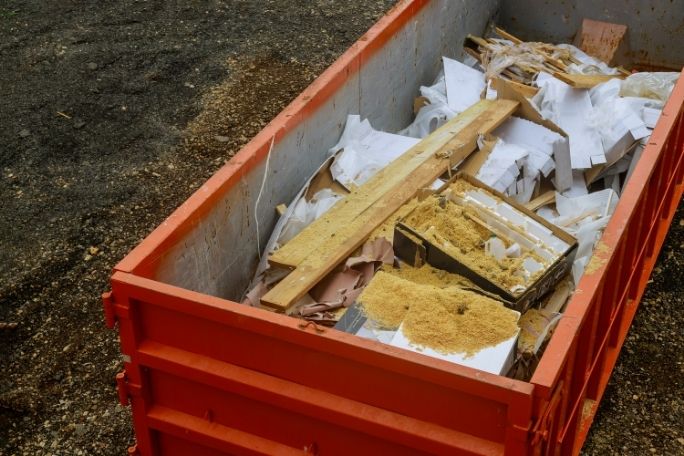Lesson summary
In this lesson, students will learn how materials from a demolished house can be recycled. They will then draw on new knowledge and understandings to develop a narrative that explores the recycling journey of a product that has come from a demolished house. Students will develop skills in creating narratives that follow a non-linear structure, such as a flashback, or a look backwards in time. This lesson is designed to provide valuable practise for NAPLAN, the national literacy and numeracy test held in Years 3, 5, 7 and 9*.
Learning intentions:
Students will...
- be aware that building materials from demolished houses can be recycled
- are able to develop a narrative with non-linear structure.
Success criteria:
Students can...
- demonstrate the process involved with recycling materials from a demolished house
- recall the various types of materials that can be recycled from a demolished house
- write a narrative in which the story does not start at the beginning.
Lesson guides and printables
Lesson details
Curriculum mapping
Australian curriculum content descriptions:
Year 5 English:
- Understand how texts vary in purpose, structure and topic as well as the degree of formality (ACELA1504)
- Create literary texts using realistic and fantasy settings and characters that draw on the worlds represented in texts students have experienced (ACELT1612)
- Plan, draft and publish imaginative, informative and persuasive print and multimodal texts, choosing text structures, language features, images and sound appropriate to purpose and audience (ACELY1704)
Year 6 English:
- Understand how authors often innovate on text structures and play with language features to achieve particular aesthetic, humorous and persuasive purposes and effects (ACELA1518)
- Experiment with text structures and language features and their effects in creating literary texts, for example, using imagery, sentence variation, metaphor and word choice (ACELT1800)
- Plan, draft and publish imaginative, informative and persuasive texts, choosing and experimenting with text structures, language features, images and digital resources appropriate to purpose and audience (ACELY1714)
Syllabus outcomes: EN3-3A, EN3-7C, EN3-2A.
General capabilities: Literacy, Ethical Understanding.
Cross-curriculum priority: Sustainability OI.3.
Relevant parts of Year 5 achievement standards: Students create imaginative, informative and persuasive texts for different purposes and audiences. When writing, they demonstrate understanding of grammar using a variety of sentence types. They select specific vocabulary and use accurate spelling and punctuation. They edit their work for cohesive structure and meaning.
Relevant parts of Year 6 achievement standards: Students create detailed texts elaborating on key ideas for a range of purposes and audiences. They demonstrate an understanding of grammar, and make considered vocabulary choices to enhance cohesion and structure in their writing. They use accurate spelling and punctuation for clarity and make and explain editorial choices based on criteria.
Unit of work: National Recycling Week – Primary
Time required: 90 mins
Level of teacher scaffolding: Medium – students who have difficulty with writing tasks set for Year 5 and 6 standard will require support for this task.
Resources required
- Student worksheets – one per student (printed)
- Can You Recycle A House? Worksheet – one per student (printed)
- Can You Recycle A House? Answers (only one copy required)
- Projector with sound to view video and Constructive Recycling Information
- Paper for narrative writing
If possible, use recycled paper to print worksheets on and save any discarded paper to re-use in other classroom activities.
Skills
This lesson is designed to build students’ competencies in the following skills:
- communication
- creativity
- ethical understanding
Additional info
Planet Ark’s National Recycling Week started in 1996 to bring a national focus to the environmental benefits of recycling. This highly regarded annual campaign continues to educate and stimulate behaviour change by promoting kerbside, industrial and community recycling initiative. It also gives people the tools to minimise waste and manage material resources responsibly at home, work and school. In partnership with Planet Ark, we have developed lessons from early learning through to year 10 to help educators bring these important topics into the classroom.
National Recycling Week is held in the second week of November each year but you can recycle all year-round with these lessons which were designed to be used at any time. Click here to find out more about National Recycling Week and the Schools Recycle Right Challenge.


Welcome back!
Don't have an account yet?
Log in with:
By signing up to Cool.org you consent and agree to Cool's privacy policy to
store, manage and process your personal information. To read more, please see
our privacy policy here(Opens in new tab).
Create your free Cool.org account.
Many of our resources are free, with an option to upgrade to Cool+ for premium content.
Already have an account?
Sign up with:
By signing up to Cool.org you consent and agree to Cool's privacy policy to
store, manage and process your personal information. To read more, please see
our privacy policy here(Opens in new tab).